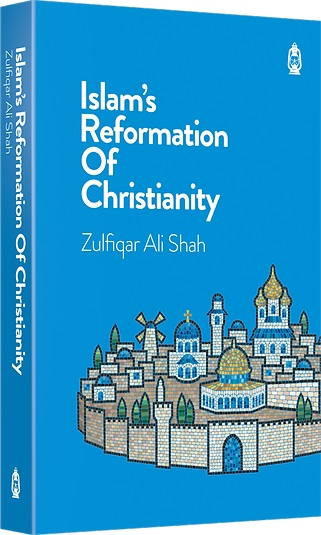Islam's Reformation of Christianity

Jesus was a product of Semitic monotheism, moral law, piety and humility. His kingdom was the other worldly. His ethical monotheism was transformed by the Roman Empire and mythology. The supernatural, Trinitarian and miraculous Roman Christianity transitioned into unintelligible dogmas, the abolition of law, moral laxity, this worldly kingdom and divine right absolutism.
Natural theology, law, cosmology and politics were all compromised. Religious freedom was barred, and persecutions were normalised. Latin Christendom was a persecutory society. Islam was an intellectual cure to Christian paradoxes and an egalitarian pluralistic alternate to Christian inquisitions and religiopolitical absolutism. It spread in the Eastern Christian territories like a bush fire.
This reformation of Christian excesses in religiopolitical theology reformed its paradoxical incarnational theology, antinomianism, grace-based salvation scheme, divine right Church and monarchy, interventionist cosmology and religious persecutions.
This insightful and groundbreaking new book provides an in-depth study of the Islamic, Southern Reformation of Christianity, a reformation seldom acknowledged or studied by the historians. It explores how the Islamic reformative scheme emphasised ethical, transcendental monotheism, natural theology and rational discourse. It limited monarchy and placed significance on an inclusive, pluralistic and free society.
The Seventh Century Islamic natural, rational, moral, republican and egalitarian reformation was the Southern Reformation of Christianity, long before the partial Northern Reformation of Luther and Calvin.
Related Articles
The long medieval centuries witnessed the absolute iron fists of the church and its monarchical abusive powers. The Catholic Church, the only religious power during this time.
The long medieval centuries witnessed the absolute iron fists of the church and its monarchical abusive powers. The Catholic Church, the only religious power during this time, became the largest landowner, employer and powerhouse of Europe.
This monumental study examines issues of anthropomorphism in the three Abrahamic Faiths, as viewed through the texts of the Hebrew Bible...
During the formative classical period of Islamic jurisprudence, well-known scholars possessed not only the intellectual skills required for analytic reasoning, but also a broad general knowledge of the fields relevant to the cultural contexts in which they issued their edicts. A viable fatwa requires knowledge of the Shari ah as well as local customs, cultural realities, individual and communal implications, and related matters.
hroughout history, Christianity and Judaism have tried to make sense of God. While juxtaposing the Islamic position against this, the author addresses the Judeo-Christian worldview and how each has chosen to framework its encounter with God, to what extent this has been the result of actual scripture and to what extent the product of theological debate, or church decrees of later centuries and absorption of Hellenistic philosophy.
